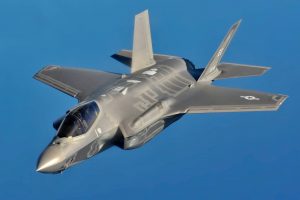Turkey is increasing its influence in the Caucasus and Central Asia to establish itself as a regional power through strategic alliances.
**
Summary: Turkey is reviving its historical influence in regions like the Caucasus and Central Asia to assert itself as a regional power. By participating in the “Astana Trio” and supporting Azerbaijan in conflicts like Nagorno-Karabakh, Turkey is expanding its presence strategically. Ankara’s independence in diplomatic relationships signifies its growing influence and ability to shape its own future. While still maintaining ties with NATO, Turkey is aiming for a more independent approach in areas like the Caucasus and the Gulf. As external powers like Russia, China, and the US play a role in the region, Turkey’s assertiveness in diplomacy and power projection will be a key factor in shaping the political and economic landscape. Ultimately, Turkey is positioning itself to become a major global player, influencing not only regional dynamics but also the broader international order.
A Return to Historical Influence
Turkey is actively reviving its role as a regional power, drawing on the legacy of its former empires to assert its influence in strategic regions such as the Caucasus and Central Asia. This resurgence is part of a broader effort by Ankara to carve out new spheres of influence reminiscent of its historical dominance. By leveraging its geopolitical position, Turkey aims to shape the region’s future, enhancing its role not only in its immediate neighborhood but also in broader geopolitical dynamics.
The “Astana Trio” and Turkey’s Independent Diplomacy
In recent years, Turkey’s involvement in the “Astana Trio” (comprising Russia, Iran, and Turkey) has been a key factor in its growing regional clout. Originally formed to address the conflict in Syria, this diplomatic framework has not only reinforced Turkey’s influence in the Middle East but also showcased its growing independence on the world stage. This shift marks a significant turning point, symbolizing a period in which Turkey is increasingly shaping its own future as a sovereign and independent power. Ankara is no longer content to play a secondary role in regional affairs but is actively positioning itself as a leader capable of influencing major geopolitical outcomes.
Strategic Gains in the Caucasus and Central Asia
Turkey’s increasing presence in the Caucasus, particularly through its support for Azerbaijan during the Nagorno-Karabakh conflict, has underscored its strategic ambitions. By aligning with key regional players, Turkey is expanding its reach and influence in the Caucasus, a historically contested area. The same ambition is evident in Central Asia, where Turkey is tapping into historical, linguistic, and cultural ties to strengthen its presence. This outreach not only secures Turkey’s economic and political interests but also reflects its desire to be a dominant force in these regions.
Mutual Concessions and Regional Bargaining
In this evolving landscape, regional agreements that involve mutual concessions will play a pivotal role in cementing Turkey’s position. For instance, Ankara’s influence in the Caucasus could be leveraged to gain strategic footholds in other regions, such as the Gulf. This approach demonstrates Turkey’s ability to navigate complex geopolitical negotiations and create a balance of power that serves its interests. While these maneuvers are aimed at consolidating Turkey’s influence in a wider geographic area, they also highlight the country’s diplomatic agility in achieving long-term strategic goals.
Turkey’s Relationship with NATO: Beyond Security Guarantees
Despite its growing independence, Turkey continues to maintain a significant relationship with NATO, a partnership that has been central to its defense and foreign policy for decades. However, Turkey’s expanding regional ambitions go beyond the traditional scope of NATO’s security guarantees. NATO’s commitments largely focus on providing protection against external aggression, but Turkey’s broader goals—especially in regions like the Caucasus, Central Asia, and the Gulf—require a more independent approach to diplomacy and regional power projection. While NATO remains an important partner, Ankara is charting its own course when it comes to expanding its influence in these areas.
The Region at a Critical Juncture
The Middle East and surrounding regions now stand at a critical juncture. Turkey’s influence is growing, and as Ankara continues to assert itself as a central player, the balance of power in the region is poised to shift. The involvement of external powers, such as Russia, China, and the United States, will undoubtedly play a role in shaping the region’s future. However, Turkey’s growing independence and strategic assertiveness mean that Ankara will remain a key actor in determining how the region’s political and economic landscape evolves. Whether through diplomatic negotiations, military alliances, or economic partnerships, Turkey’s role in regional geopolitics is becoming increasingly prominent.
A Vision for Global Power
Turkey’s ambitions to be a central force in regional affairs reflect its broader vision of becoming a global power. This vision is rooted not only in historical ties but also in a pragmatic understanding of modern geopolitics. By balancing relationships with powerful global actors while maintaining its own strategic autonomy, Turkey is positioning itself as a major player in shaping the future of the Middle East, the Caucasus, and Central Asia. As these regions continue to undergo significant political and economic changes, Turkey’s role will likely expand, influencing not only the immediate regional dynamics but also the broader international order.
Conclusion: A New Chapter in Turkish Geopolitics
In conclusion, Turkey’s resurgence as a regional power is a carefully orchestrated effort to reclaim its historical influence while adapting to the complexities of contemporary geopolitics. As Turkey strengthens its presence in the Caucasus, Central Asia, and beyond, it is clear that Ankara’s ambitions are far-reaching. The region is at a turning point, and Turkey is poised to play a decisive role in shaping the future balance of power. With a growing sense of sovereignty and independence, Turkey is asserting itself as a central actor in the regional and global arena, marking the start of a new chapter in its geopolitical strategy.






